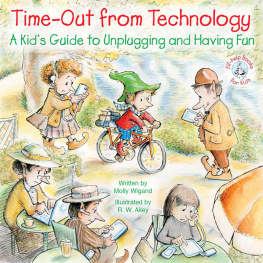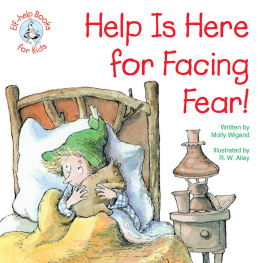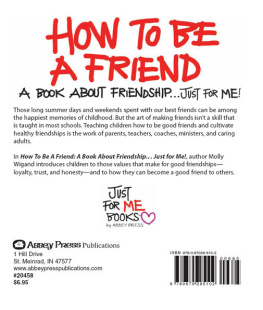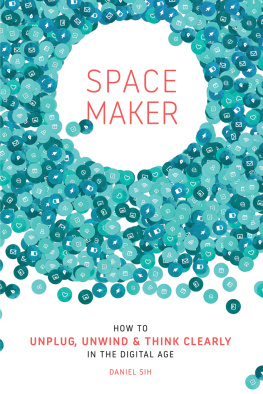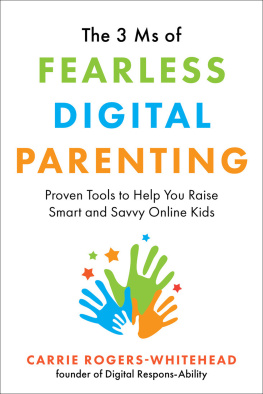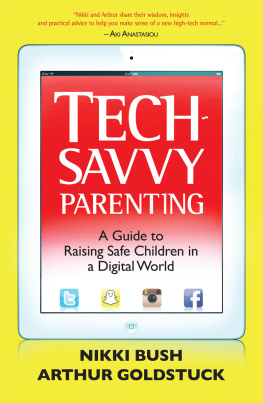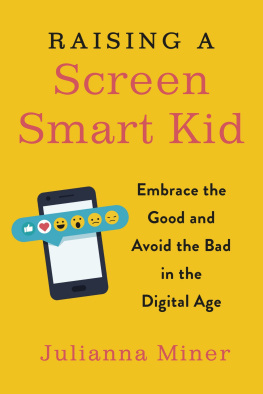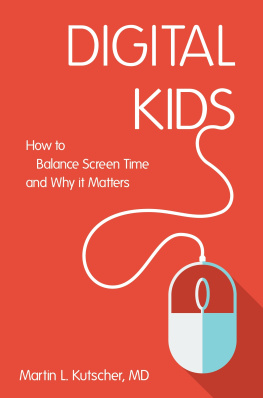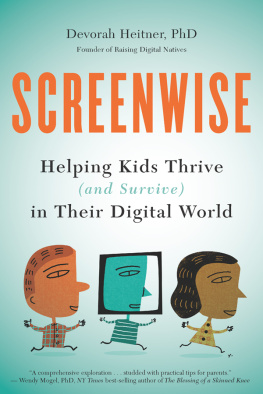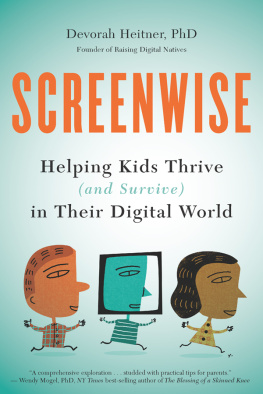Time-Out from Technology
A Kids Guide to Unplugging and Having Fun
Written by Molly Wigand
Illustrated by R. W. Alley

Abbey Press
Dedicated to
John, Joey, and Danny Jackson,
who help me keep my life in balance.
A Message to Parents, Teachers, and Other Caring Adults
We see the warnings everywhere: too much time spent playing video games and watching TV places our children in danger of obesity, heart disease, and a host of other dangerous conditions.
As they grow into young adulthood, our childrens relationship with technology becomes even more intense and complicated. The internet creates a dynamic in which it is difficult to discern which relationships are real and which are false or illusory. At a time when young people have more friends than ever online, the addictive technology keeps them from interacting with people in real life.
The media children consume on television and in movies is available on demand, creating an endless stream of content to be passively absorbed without ever leaving the house. Experts estimate that children ages eight to 18 spend an average of 44.5 hours a week in front of a screen. This overload enables a brand-new version of peer pressure in which children are judged according to their digital awareness and consumption.
While the burgeoning technology suggests some dangers to our children, theres no question it has benefits, too. Were living in a digital age, and to deprive our children of opportunities to explore and master technology puts them at a disadvantage as they progress in school and into the workplace. The ambivalent effects of technology on our kids make this a confusing time for families trying to do the right thing.
By establishing reasonable limits and nurturing an open dialogue with our children, we can help them become discerning and thoughtful consumers of digital media. We can implement parental controls and passwords to help set limits for childrens time on-line. More important, though, is setting good examples by mindfully unplugging ourselves from the digital space and spending time with our kids off-line, providing opportunities for them to have fun and be stimulated by real-life experiences. This balance will help them become smart digital consumers who develop good habits and create healthy relationships.
Molly Wigand

Technology. Its everywhere!
H ave you ever stopped to think how much time you spend in front of a lighted screen? Whether its a tablet, a computer, or a television, our electronic devices keep us company much of the time.
B ut theres more to life than all these screens! God gives us 24 hours every day, and its our job to be careful how we spend them. Its okay to spend some time playing games, and watching movies and TV. But when we spend too much time hooked up to our devices, our lives get out of balance. We miss out on some of the amazing things the world has to offer.

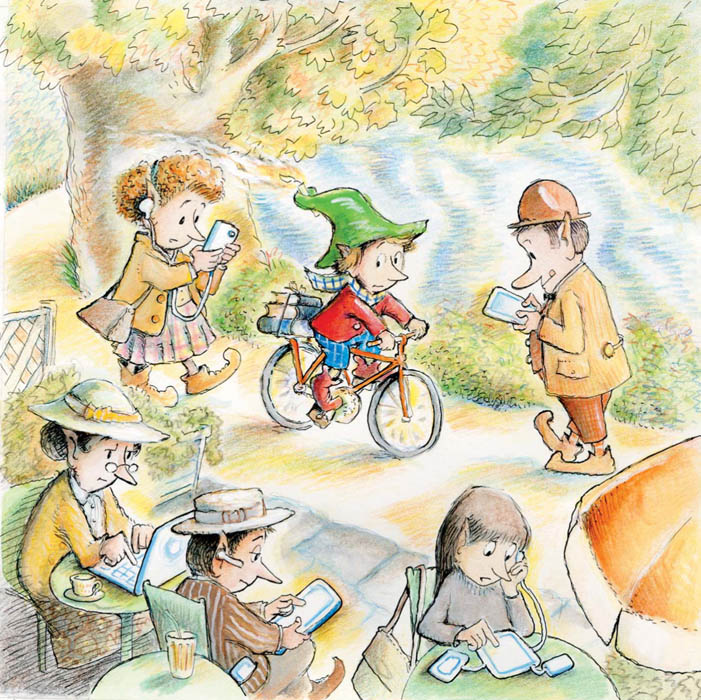

Active or Passive?
W e all have the ability to spend our days doing and being things that make a difference in our world. When you paint a picture or write a story or pick up your toys, youre making the world a little different (and better!) than it was before. Youre being active when youre doing positive things like this.
B ut when youre watching a show or playing a video game for hours, youre simply taking it in. Youre being passive. Youre not using your mind and your strength to make or do something. And making and doing are two things that kids are really good at.

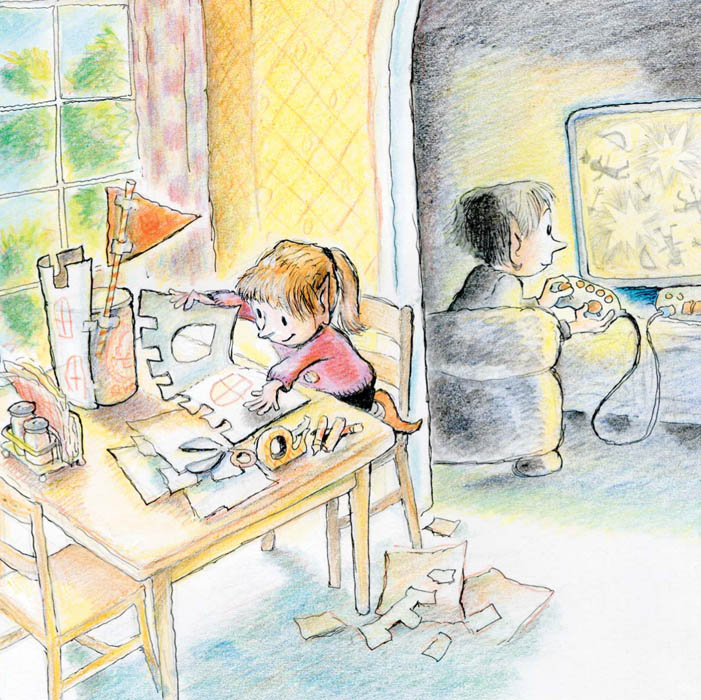

Get Up and Move!
U sually, were sitting in one place when were watching TV, playing video games, and surfing the internet. When we sit in one place, our bodies get out of shape. We dont get the exercise we need to be healthy and happy. Sitting around can make you tired, bored, and cranky, even when youre watching something fun on TV.
J ust a little activity can improve your mood and keep your heart, lungs, and muscles working at their best! You could build a fun walk around the block break into your movie watching. Or do jumping jacks while youre waiting for your turn to play a game.




Grown-Ups Need Help, Too!
S ometimes the grown-ups in your life spend too much time looking at the glowing screens, too. If youre watching TV, and your dad is texting, and your moms working on her tablet, it may feel like youre not together as a family.
I f you think TV and computers are getting in the way of family times, have a talk with your mom or dad. God gave us families so we can love each other and share our ups and downs. Maybe your family can choose one hour a night thats unplugged time, or go somewhere and promise not to have your phones turned on. Dont let technology get in the way of being a close family.



Sneaky Screen Time Hurts Everyone!
S ometimes kids keep playing games and watching TV after their parents ask them to go to bed. Other kids sneak computer or game time when theyre supposed to be doing their homework.
S neaking late-night video game time makes it hard for you to get enough sleep. Its easy to lose track of the time when youre playing games or looking at things on the internet. Chances are youll stay up too late to do your best at school.

